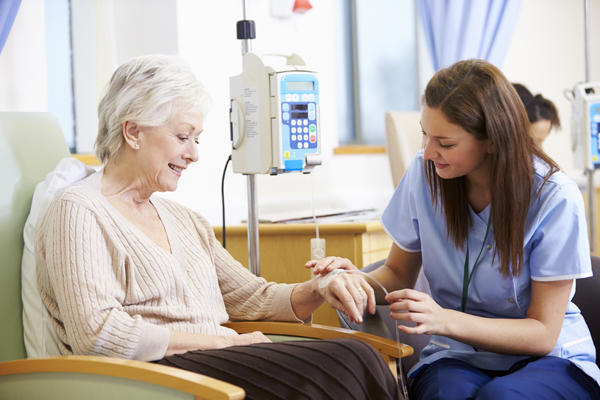According to researchers from the US Food and Drug Administration (FDA), adults aged 75 and older are underrepresented in clinical trials testing new blood cancer therapeutics, despite the higher incidence of this disease in older adults. The findings – which were presented at the 59th American Society of Hematology (ASH) Annual Meeting and Exposition in Atlanta – were the result of the first in-depth analysis of trial participation among this age group.
Interestingly, individuals under the age of 65 tended to make up the bulk of participants enrolled in these studies, even though blood cancers are more common among those who are older. It’s estimated that one in every five patients diagnosed with some form of hematologic malignancy is over the age of 75, and the incidence of blood cancer in this age group is only expected to increase in the coming years.
“Until now, there has been very little information about the enrollment of adults with hematologic cancers. Based on our findings, the occurrence of cancer is much higher in adults over 75 years of age compared with the proportion of patients in this age group who enroll in clinical trials,” said lead study author Dr. Bindu Kanapuru, medical officer in the Division of Hematology Products, Office of Hematology and Oncology Products in the FDA’s Center for Drug Evaluation and Research. “With so few patients aged 75 or older enrolled in clinical trials, critical information on the safety and effectiveness of new therapies in this age group is greatly lacking.”
The FDA analyzed data collected from blood cancer clinical trials conducted between 2005 and 2015. In all, data on 44,000 study participants was included in the analysis.
Kanapuru and her colleagues categorized patients based on their age in order to determine how many participants from each age group were represented in these trials. They then compared these enrollment numbers to data collected by the National Cancer Institute on the incidence of each type of hematologic malignancy in the age groups.
They found that almost 80 percent of patients in chronic myeloid leukemia (CML) clinical trials were younger than 65. Since only 50 percent of all patients diagnosed with this form of blood cancer belong to this age group, the result suggests that adults older than 65 are underrepresented in these studies.
In addition, adults aged 75 and older were found to be underrepresented in trials of lymphoma, chronic lymphocytic leukemia (CLL) and multiple myeloma. In some cases, theses patients made up as little as four percent of the participants in clinical trials.
“We weren’t surprised to see that, overall, adults aged 75 years and older were under-represented in clinical trials, as this is common across cancer trials,” said Dr. Kanapuru. “But we were surprised by the magnitude of the gap for this age group, particularly for CML trials.”
Encouragingly, patients aged 65 to 74 were found to participate in clinical trials proportionally to the incidence of most of these hematologic malignancies.
According to Kanapuru, despite the agency’s best efforts to encourage study sponsors to focus on enrolling older adults, there are a number of barriers that prevent them from meeting their goals. Comorbidities – including heart, liver and kidney disease – are exclusionary criteria for blood cancer clinical trials, and these conditions are more common among older adults.
“In addition, doctors may hesitate to enroll these older patients because they aren’t sure how they will tolerate investigational medications,” said Dr. Kanapuru. “The 75-and-older population is also extremely heterogeneous. You can have one 75-year-old who is very healthy and another person of the same age who is frail and has a lot of co-existing illnesses.”
The most important lesson to be learned from these results is that individuals aged 75 and older should not be excluded from trials on the basis of their advanced age alone. Kanapuru urges clinical investigators to develop better assessment tools to identify older patients who may benefit from clinical trials.












Join or login to leave a comment
JOIN LOGIN